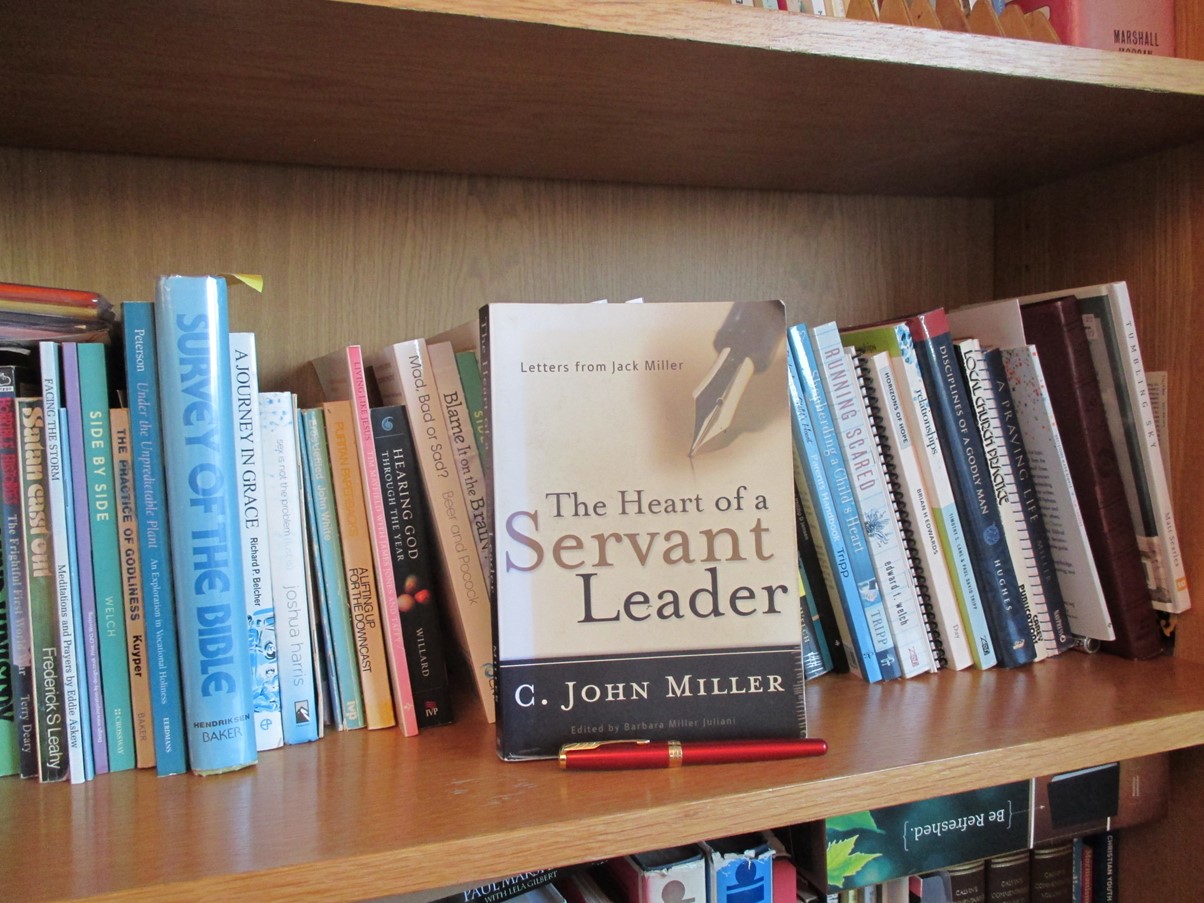Servant leadership

As I reflect on standing down as an elder at Christ Church my overriding feeling is thankfulness to God for his grace to me in enabling me to serve in this way for many years in two very different churches, but also a sense of the privilege of being a pastor/elder. I wanted to recommend a book that has helped me as I have thought about helping others
When I did some counselling training a few years ago there were three principles I was given to consider when helping people:
- Seeing the good in people and encouraging them in their responses to hardship
- Tackling sin in it’s varied and subtle forms
- Sympathising with people in their sufferings.
These three things look quite straightforward until you try and put them into practise! For example if someone is caught in the grip of addiction to pornography it would be easy to begin with saying words to the effect of ‘Just stop it!’. But that is often not the first thing we should say.
If you were looking for Biblical confirmation of this principles I would go to 1st Thessalonians.
‘And we urge you, brothers and sisters, warn those who are idle and disruptive, encourage the disheartened, help the weak, be patient with everyone. Make sure that nobody pays back wrong for wrong, but always strive to do what is good for each other and for everyone else. (1 Thessalonians 5 vs. 14 – 15).
Reflecting on this passage I can say I too easily go for the ‘warn’ button in the first phrase and forget the other words in the passage like ‘encourage’, ’help’ and ‘be patient’
The most helpful book I have found to encourage me personally is by Jack Miller called ‘The Heart of a Servant Leader’. It’s actually pastoral letters that Jack wrote during his many years of ministry that were published by his daughter some while after her father’s death.
The letters are full of his pastor love and care and because they are real letters to real people you are actually seeing pastoral care in action right there on the page first hand.
One letter in the book is to a person called Andrew a young man who is dying from AIDS (this is in the late 80’s).
The first few paragraphs of the letter are full of encouragement. Miller looks for the good in Andrew’s experience and is thankful for Andrew’s willingness to share his current burdens with him. He also focuses on what Andrew has shared about the loving care he is being given by other church members. In these two ways he reveals something good about Andrew – you could call it the ‘dew of blessing’ in his life. He says things like ‘Suffering can put us in a position of insight which no-sufferers never enjoy’ (page 293).
He also sympathises with Andrew’s struggles with two of his friends’ behaviour towards him. ‘We are also praying that James (Andrew’s counsellor) will be able to help you wrestle with the issues of self-centredness that you see in the two fellows that live with you. I am glad you were deeply shocked by their blindness to their own me-firstism. Think about it. Today self-worship is an epidemic. ’
But then he says this to him, (bear in mind this is to a man suffering with AIDS and very seriously ill).
‘You are right to hate what you see in your friends. It’s evil stuff. But now let’s get into the fight of repenting of the same egocentricity in ourselves! How many times has my own self-centred heart grieved my heavenly Father and wounded others! Remember what Jesus said in Luke 6 vs. 42 “First take the plank out of your eye, and then you will see clearly to remove the speck from your brother’s eye …..’
Brave stuff! I am quite sure I would shrink back from being so bold particularly with someone dying . But if you read the whole letter (which is on pages 292 – 299 of the book) it is full of pastoral warmth and sympathy with Andrew’s situations and sufferings. Miller is so gracious in pointing out the good and sympathising with Andrew in his battle with AIDS and increasing weakness that the firm rebuke doesn’t come as a jolt. If I received a letter like that I am sure I would be able to accept it from a brother in Christ who cares about my wellbeing enough to engage with me with raw honesty.
But I think all of us as church members and brothers and sisters in Christ are called to be like this with each other. To engage rather than withdraw, to be attentive to our brothers’ and sisters’ struggles. To look for the good in a person’s situation and in how they are responding to it. And then be willing to challenge a fellow believer about their response to suffering as well as sympathising with them in their pain and anguish.
If you want a master class in how to do this read Jack Miller’s letters. Or perhaps more be like Jesus. Don’t be in a hurry to see people change. Jesus wasn’t. Learn his ‘unforced rhythms of grace.’ (Matthew 11 vs. 30 The Message). Look for the good in people and dwell on it, sympathise with people in their sufferings and be ready to gently but firmly point out sin.

Thank you for sharing this Stephen. Really interesting and helpful. I’m particularly struck by the way in which Jack points to his own shortcomings before the Lord as well as challenging the letter receiver. You really sense the journeying and growing together, which is beautiful.